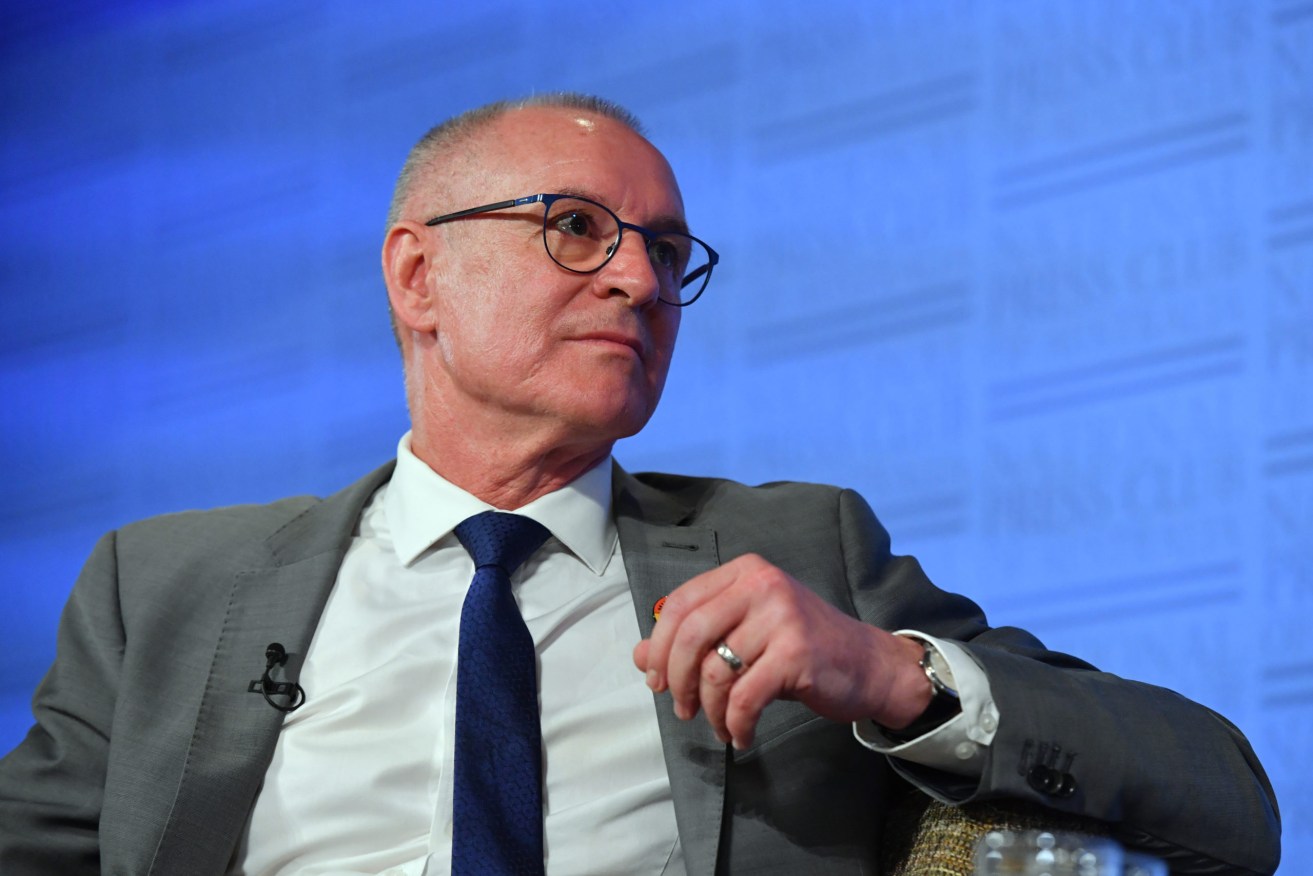Ex-Premier tells: how to make Labor electable
Former Premier Jay Weatherill says social policy is “the new province for economic reform”, arguing the Labor Party would find federal success if it committed “to make Australia the best place in the world to be a parent, and the best place in the world to grow up”.

Thrive By Five CEO and former SA Premier Jay Weatherill at Canberra's National Press Club in February. Photo: Mick Tsikas / AAP
In a speech delivered in Adelaide this week to the Progressive Labor Education Association, the now-Perth-based CEO of Andrew Forrest’s Minderoo Foundation-backed Thrive By Five early childhood initiative said a “21st century economic reform agenda” was one that “creates jobs, expands the size and capability of the workforce – with benefits for each of the main drivers of economic growth – and makes excellent political and economic sense”.
But Weatherill, who co-authored a landmark review of Labor’s 2019 federal election loss under Bill Shorten, said for the ALP “economic reform must have a social consequence”.
In a rare foray into the political arena since he took up his role at the not-for-profit, the former Premier said people were “increasingly understanding that important constraints on economic growth are caused by the failure of social systems”.
“Social policy is therefore the new province for economic reform,” he said.
“I firmly believe that the Australian Labor Party would be elected at the next federal election on a commitment to make Australia the best place in the world to be a parent, and the best place in the world to grow up.
“The electorate would respond to a platform that reduces pressure on families and put children at the centre of our national project.
“I believe family policy – and specifically reform to the early years system – is the economic and social agenda that our nation is looking for.”
The Left has been looking for a coherent economic narrative equal to its vision
He said such a platform would simultaneously “remove the false dichotomy between social and economic policy, build a bridge across Labor’s disparate constituencies and unite and powerfully activate women”.
“All this could be described in a way that is as meaningful to suburban Australia as to those of living in the bush, as compelling to the female Chief Executive as it is the casual hospitality worker, and as important to a pregnant mum as to her tradie husband,” he said.
“For over a quarter of a century, the Left has been looking for a coherent economic narrative equal to its vision for an equal, empathetic, vibrant, diverse society… in the face of rising insecurity and anxiety we have not done enough to challenge the economic orthodoxy of our generation.
“The more we used the language of economics to argue for human-centred public policy, the more our electoral proposition appeared limited to a better version of the same product… this limited our capacity to deliver the critique of neoliberalism it deserved, nor did we develop an accessible and attractive alternate vision.”
Weatherill’s 2019 campaign post-mortem with ex-federal frontbencher Craig Emerson found Labor ran a campaign that “lacked focus, wandering from topic to topic without a clear purpose”, while the size of the spending commitments “fuelled anxieties among insecure, low-income couples in outer-urban and regional Australia that Labor would crash the economy and risk their jobs”.
My response to the election review pic.twitter.com/vStsCevdpj
— Bill Shorten (@billshortenmp) November 7, 2019
It noted Labor lost support among blue-collar and coal-mining communities, as well as among Christians.
“Reflecting on my parliamentary career and the present challenges facing Labor, the challenges we outlined in the Review have not receded,” he said this week.
People now want, and expect, governments to step up [and] intervene in their interests
He took up his Thrive By Five role a month after that review was published, and now says the Left “need a different intellectual and public policy framework, one that is both economically sound, and socially consequential”.
“Early learning reform is the seed from which we meet this challenge,” he said.
“The modern childcare system was conceived as a child-minding service when subsidies replaced direct government funding. At the time, the system was designed with the central goal of encouraging parents to return to work.
“Learning opportunities for children were a secondary consideration.”
Now, however, he argues, “the current system does not reflect the importance of the early years to a child’s lifelong success, nor does it do justice to the importance of early learning to our national competencies on which a secure and prosperous future will be founded”.
“Quarantined from any market-institutionalisation and de-commodified, early learning would ironically make a far greater contribution to economic growth,” Weatherill said.
“Reducing or removing costs of early learning would encourage larger families, with obvious implications for population and economic growth.
“A world-leading, universally-accessible early learning is exactly what economic reform should be in modern society and a developed economy…
“If Australia continues to ignore this important area of public policy, we will fall farther behind.”
He emphasised a “caring economy”, saying: “The greater employment in the caring economy, and the greater career opportunities for second-income earners, would increase the disposable income to those with a high marginal propensity to spend, leading to an additional wave of economic activity”.
“The neoliberal agenda, which was once legitimised for its promise of a stronger economy, has produced low growth cycles, unevenly distributed, with rising levels of social dislocation – this is not a healthy picture of a modern society,” he said.
“But during the current pandemic, attitudes to the role of government have changed – people’s vision of government as the source of security has been renewed.
“People now want, and expect, governments to step up, be active and intervene in their interests.”




